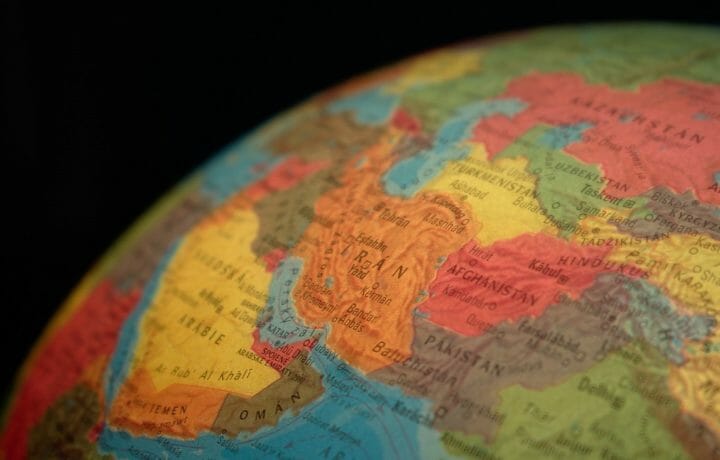The White House has taken the unprecedented step of designating the Iranian Revolutionary Guards Force as a foreign terrorist organization. This marks the first time that the U.S. government has applied the label to a state organization. Depending on who you listen to, this move is either long overdue, or the greatest threat to Middle East security in the history of ever.
Either way, it should hardly come as a surprise. There has been talk that such a move was in the works since the president took office. Each time, Iran has reacted with predictable bluster. The IRGC’s commander, Maj. Gen. Mohammad Ali Jafari, had previously warned that Iran would retaliate by designating the U.S. Army as a terrorist organization. This time around, he said that if there U.S. were to make the move, American focus in the region “will lose peace and quiet.”
Iran has killed hundred of American Service Members
Except Iran has done its level best to ensure the U.S. military has had no peace and quiet in the region since shortly after the 2004 invasion of Iraq. Iran took advantage of the instability, and using the IRGC, supplied Iraqi Shiite militias with the components to make explosively formed penetrators—deadly improvised explosive devices that turned a milled copper disc into a molten projectile. These weapons were powerful enough to burn a hole in the side of MRAPs, the mine-resistant ambush-protected vehicles the U.S. quickly fielded to deal with the IED threat.
Previously declassified reports had put the number of U.S. deaths from EFPs at 186, with another 861 wounded. In 2015, the Pentagon said that overall, Iran was responsible for the deaths of at least 500 Americans in Iraq. Last week, in a move that foreshadowed Monday’s announcement, officials increased that estimate to at least 603. That’s a not exactly peaceful, or quiet.
Iran has been designated a state sponsor of terrorism since 1984. The truth is the IRGC is the way they get that done. As the president’s statement said, “the IRGC actively participates in, finances, and promotes terrorism as a tool of statecraft. The IRGC is the Iranian government’s primary means of directing and implementing its global terrorist campaign.” Of that there can be little doubt.
Tightening the financial noose
Designating the IRGC as a terrorist organization tightens the financial noose. European governments, upset that the White House withdrew the U.S. from the Joint Comprehensive Plan of Action, the so-called Iranian nuclear deal, setting up a mechanism for European businesses to trade with Iran despite U.S. sanctions. The designation will ensure that none of that trade benefits the IRGC.
A conviction for providing material support to a terrorist organization would get the perpetrator 20 years to life in a U.S. Federal prison. While many European CEOs are likely to be comfortable with using a European Union-sponsored end-run around sanctions, the prospect of facing arrest when they land in Orlando on a family trip to Disney World is another matter altogether.
As well it should be.
The best historical parallel to the IRGC is the Nazi SS. In the same way the SS was an armed force loyal not to the German government (before or after Hitler rose to power) but to the Nazi Party, the leaders of the Iranian Revolution formed the IRGC as their personal protection against the professional military. The ayatollahs didn’t trust the Iranian Army’s loyalty anymore than Hitler trusted the German military’s loyalty. The SS existed, and the IRGC exists today, as an army outside the Army, operating virtually without constraint.
And like the SS, the IRGC has branched out from purely paramilitary endeavors to business ones as well. The Foundation for the Defense of Democracies, a conservative Washington think tank, estimates that the IRGC controls between 20 and 40% of Iran’s economy. That means that any financial dealings with that 20 to 40% now carries that hefty prison stay as a consequence.
Iran will continue to make trouble for the U.S. They were going to do that regardless of whether the White House made this announcement or not. But now there will be even more severe consequences for those who help make that possible.




